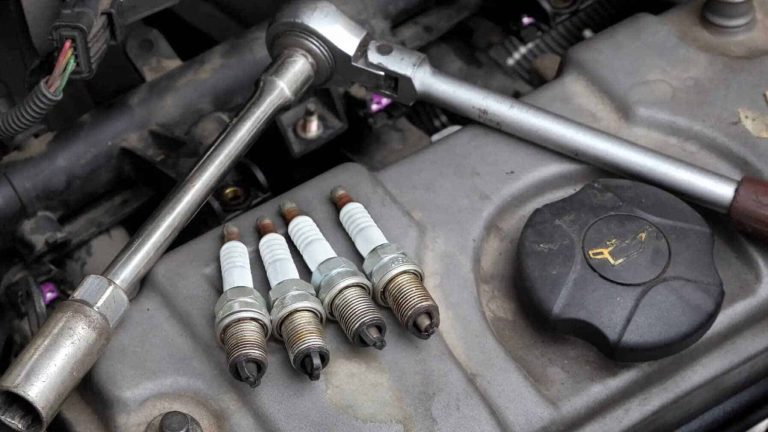What Are Dealer Fees?
When purchasing a car, you’ll likely face various additional charges known as dealer fees. These fees cover tasks from documentation to preparing the vehicle for sale. While some fees, like destination charges, are fixed, others such as documentation fees are often negotiable. Knowing about these fees is crucial for any car buyer to avoid overpaying. In this post, we will find out the different types of dealer fees and highlight which ones you might be able to negotiate.

What Are Dealer Fees?
Dealer fees are additional charges that a car dealership may apply to the final purchase price of a vehicle. These fees can vary widely between dealerships and can cover a range of services or administrative costs. Here are some common types of dealer fees you might encounter when buying a car:
-
Documentation Fee: This fee varies widely by state. In some states, it’s capped at a certain amount (e.g., $75 to $500), while in others, it can be higher. The national average is typically between $100 and $400.
-
Destination Fee: For new cars, this fee is set by the manufacturer and is generally non-negotiable. It usually ranges from $900 to $1,700, depending on the vehicle and manufacturer.
-
Dealer Preparation Fee: This fee can range from $100 to $500. It covers the cost of preparing the vehicle for sale, including cleaning and a pre-delivery inspection.
-
Title and Registration Fees: These fees are regulated by the state and can vary widely. On average, you can expect to pay between $50 and $300, depending on your location and the type of vehicle.
-
Advertising Fee: This fee can range from $100 to $300. It’s often built into the vehicle price and not itemized separately in all cases.
-
Compliance Fee: These fees are less common and can range from $50 to $200. They are supposed to cover the cost of ensuring the vehicle meets local and federal regulations.
-
Finance Charges: These depend on the amount financed, the interest rate, and the loan term, making them highly variable. They are not typically itemized as a separate fee but are part of the finance agreement terms.
-
Extended Warranty/Service Contracts: The cost for these can vary significantly based on coverage level, vehicle type, and length of contract. Prices can range from $1,000 to over $3,000.
-
Dealer-Installed Options: The cost for these additions can vary greatly depending on the type and number of add-ons. Simple upgrades like floor mats or window tinting might cost a few hundred dollars, whereas more extensive modifications like high-end audio systems or performance enhancements can cost thousands.
Are Dealer Fees Negotiable?
Yes, many dealer fees are negotiable. While certain fees like destination charges (set by the manufacturer for transporting the vehicle to the dealership) and state-mandated title and registration fees are typically fixed, other fees such as documentation fees, dealer preparation fees, and dealer-installed options can often be negotiated. Here’s how you can approach negotiating these fees:

-
Documentation Fee: This is one of the most commonly negotiated fees. Although dealers may claim it’s standard or non-negotiable, there is often room for negotiation, especially if the fee seems unusually high compared to average rates in your area. In states where it’s not capped, negotiation is particularly relevant.
-
Dealer Preparation Fee: Fees charged for preparing the car for sale can also be negotiated. Since these services (like washing the car and removing shipping protectors) cost the dealer relatively little, you can argue that these costs should already be included in the price of the vehicle.
-
Dealer-Installed Options: Items added by the dealer such as window tinting, paint protection, or upgraded wheels are definitely negotiable. You can often negotiate the price of these additions down significantly or decide not to opt for them at all.
-
Advertising Fee: If this fee is listed separately, it can sometimes be negotiated, especially if you feel it unfairly inflates the cost of the vehicle.
-
Extended Warranties and Additional Services: These are highly profitable for dealerships but come with high markup, making them good candidates for negotiation. You can usually negotiate the price of extended warranties, maintenance plans, and other similar services down significantly.
Tips for Negotiating Dealer Fees:

- Research Beforehand: Know the average costs of fees and services in your area. Being informed strengthens your negotiating position.
- Get Itemized Price Quotes: Ask for a fully itemized out-the-door price quote. This breakdown should include all fees and extras. With this information, you can identify which fees are excessive or unnecessary.
- Shop Around: Get quotes from several dealerships. This not only gives you leverage in negotiations but also helps you find the dealership with the most reasonable fees.
- Be Willing to Walk Away: Showing your willingness to leave if the deal isn’t right can be an effective negotiation tactic. Dealers are often willing to lower fees to close a sale.
- Negotiate the Total Price: Focus on negotiating the total price of the vehicle rather than individual fees. This can often be an easier approach as it gives the dealership flexibility to adjust the components of the price while still reaching your target price.
Frequently Asked Questions
1. What are car dealer fees to be aware of while purchasing a new car?
Dealer fees include but are not limited to, the Guaranteed Asset Protection (GAP) insurance fee, advertising fee, extended warranty fees, documentation fee, and protective coating fee. Some of these fees are negotiable, and buyer awareness can contribute to informed financial decisions.
2. How can we avoid or negotiate dealer fees?
To avoid or negotiate dealer fees, stand firm on not paying unnecessary fees, shop around for the best prices, and explore alternative insurance options. Awareness of these fees are crucial to negotiate effectively.
3. Are cooling-off periods allowed under Florida law?
No, there is no cooling-off period under Florida law for car purchases. Buyers should understand the purchase contract thoroughly before signing.
4. What is the average amount of dealer fees in Florida?
The average dealer fee charged in Florida is $799.99, even going up to $2,000 at some dealerships. This fee is an additional charge to your total car cost after you agree to the purchase.
5. What’s a reasonable amount to negotiate for a new car price reduction?
As a guideline, a reduction of 2 to 3% on less expensive brands, and 5 to 10% on luxury brands can be considered reasonable. Remember, there isn’t much room to work with for price reduction based on mark-ups alone.
6. Can dealers sell cars above the Manufacturer’s Suggested Retail Price (MSRP) in Florida?
Yes, a new law allows dealers in Florida to set their own prices, prohibiting automakers from penalizing dealers for markups. Hence, dealers can sell cars above the MSRP.

Hi! I’m Larry Gibbs, studying mechanical engineering with a focus on cars. I really love Ferraris and write blog posts about the latest car stuff. When not studying or blogging, I’m usually on a road trip exploring new places. I also enjoy playing football and watching movies. Life’s an adventure, and I’m all about enjoying the ride!






